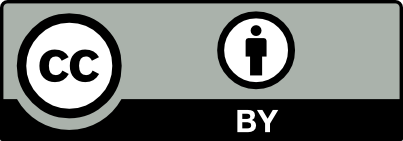Experience report on health regulatory actions in clinical laboratories in Palmas-TO
DOI:
https://doi.org/10.22239/2317-269X.00815Keywords:
Clinical Laboratories, Sanitary Surveillance, Sanitary RiskAbstract
Introduction: The importance and necessity of sanitary surveillance in clinical laboratories and of mechanisms of quality control and promotion throughout the laboratory cycle are well known. Objectives: Due to the importance of clinical laboratories in Palmas, the Municipal Sanitary Surveillance created in 2010 a proposal to improve the regulatory activity in these establishments. Method: The work was developed in four stages in parallel to the Annual Sanitary Licensing. In 2010, the first phase was the re-registration of the establishments and the presentation of the technical dossier in these establishments. In 2011, this was complemented with the analysis, revision, correction and approval of legal and technical documents. In 2012, manuals, pest control plans, waste management, input control and the presence of internal and external quality control were reviewed, as well as the flow for notification of compulsory diseases already in place. In 2013, the presentation and implementation of quality management actions were required and in 2014 the monitoring of the application of these tools was intensified. Results: The results obtained were the acceptance of the regulatory processes, as well as the accomplishment of corrections and inclusion of norms and written procedures in the technical actions and management of the clinical analysis processes. It can be verified that by the requirement of training of technicians, already at the end of 2014, the culture of the training was observed and the need for improvements and corrections of the most probable points of sanitary and analytical problems was verified, mainly having the Sanitary Surveillance as support and partner. Conclusions: It is possible to conclude that the strategy used by the Sanitary Surveillance, associated to Sanitary Licensing and to actions of gradual improvements in search of better management of sanitary risks, culminated in a harmonious relation of advising, in which the action of sanitary surveillance required minimal restrictive measures and several actions of guiding and problem solving in partnership.Downloads
Downloads
Published
Issue
Section
License
Copyright (c) 2017 Health Surveillance under Debate: Society, Science & Technology (Vigilância Sanitária em Debate: Sociedade, Ciência & Tecnología) – “Visa em Debate”

This work is licensed under a Creative Commons Attribution-NonCommercial-NoDerivatives 4.0 International License.
COPYRIGHT ALLOWANCE The author (s) hereinafter designated as the ASSIGNOR hereby assign and transfer, free of charge, the ownership of the copyrights related to this ARTICLE to the Vigilância Sanitária em Debate: Sociedade, Ciência & Tecnologia (Health Surveillance under Debate: Society, Science & Technology) – Visa em Debate, represented by FUNDAÇÃO OSWALDO CRUZ, established at Av. Brasil, nº 4365, Manguinhos, Rio de Janeiro, RJ, Brazil, CEP 21045-900, under the conditions set out below: (a) The terms and conditions set forth in this Agreement shall apply to the following: 1. The ASSIGNOR declares that they s(he) is (are) the author (s) and owner (s) of the copyrighted property of the ARTICLE submitted. 2. The ASSIGNOR declares that the ARTICLE does not infringe the copyrights and / or other property rights of third parties, that the disclosure of images (if any) has been authorized and that they s(he) assume(s) full moral and / or property liability for its content, before third parties. 3. THE ASSIGNOR assigns and transfers all copyrights relating to the ARTICLE to the ASSIGNEE, especially the rights of editing, publication, translation into another language and reproduction by any process or technique. The ASSIGNEE becomes the exclusive owner of the rights related to the ARTICLE, and any reproduction, totally or partially, is prohibited in any other means of publicity, printed or electronic, without prior written authorization from the ASSIGNEE. 4. The assignment is free and, therefore, there will be no remuneration for the use of the ARTICLE by the ASSIGNEE.







